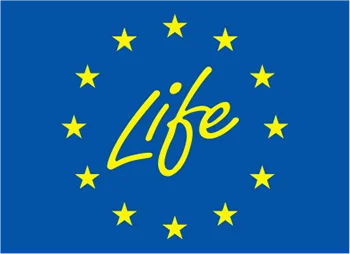The way we produce our energy today exposes us to a number of risks. Air pollution claims more and more victims every year, energy poverty in our country is growing at a serious pace, and additional pressure on forests for the purpose of extracting wood for heating would mean a heavy blow to biodiversity. For years, the environmental organization WWF has been promoting the transition to a carbon-free economy. A key tool for this is the European Green Deal – the EU’s ambitious climate policy, which aims to make Europe the first climate-neutral continent by 2050.
In this regard, WWF held a thematic conference entitled “Policies for climate neutrality in Bulgaria” with the participation of climate experts from the fields of politics, energy, environmental protection, departmental institutions, trade unions and forestry. In four thematic panels, followed by lively discussions, participants discussed a number of essential aspects of the Green Deal, including the adopted EU policy package “Ready for Goal 55”.
The event was opened by the chairman of the board of WWF for Central and Eastern Europe, Sasha Bezuhanova, and by the head of the “Climate and Energy” program at WWF, Apostol Dyankov. They welcomed the participants and launched the debates with a focus on aspects neglected in Bulgaria, such as how to implement a future Social Climate Fund. The first panel, led by the former head of the office of the Deputy Prime Minister for climate policies, Georgi Stefanov, was dedicated to the difficulties surrounding the energy transition in Bulgaria and the opportunities and deadlines for achieving energy neutrality.
The second panel was moderated by WWF climate expert Teodora Peneva, who focused on the increasingly pressing issues of energy poverty and the link between climate and social justice.
“Two million and eight hundred thousand people live in Bulgaria, who are below the threshold of energy poverty. Unfortunately, social justice is a very forgotten topic in our country. We are the ones who have to discover and implement the options to deal with this problem offered to us by climate policies. It is up to us to design the best social climate plans,” commented Teodora Peneva, senior expert in the Climate and Energy Program, WWF.
In the framework of the last two panels, led by WWF conservation director Diana Dimitrova, the experts also discussed climate change adaptation policies, examples of their implementation and the key role of nature-based solutions in the overall process.
“Human civilization has survived and developed precisely because of its ability to adapt to changing climatic conditions. So today, although in a different environment, this should not be taken as something new and impossible. The Green Deal, with its set of financial and political instruments, seriously supports our efforts in this direction. Part of its large-scale planning, including the procurement of 1 trillion euros, to be spent in a targeted manner, as well as the planting of 3 billion new trees in the European Union, 100 million of which in Bulgaria,” explained Borislav Sandov, former Deputy Prime Minister for climate policies in the last regular Parliament.
Sandov also added that with the progress of climate changes, Bulgaria is gradually entering another climate zone, which is already having an impact on various spheres of the economy, agriculture and the lives of all of us. According to him, the negative consequences of climate change, which take the most victims in Europe today, are extreme heat and heat waves.
In the panel “Adaptation to climate change”, Yana Barzova from WWF presented the CLIMAFORCEE LIFE project. She shared details of sociological surveys conducted among forest professionals and the scientific community that recommended specific measures for forest adaptation to climate change. It can be seen from them that it is good to improve the species composition of the forests and to avoid plantations with monocultures such as white pine, to respect the ecological requirements of the species, to rely on natural regeneration.
The conference was held with the support of the LIFE Program of the European commission and is part of a series of events by WWF Bulgaria and partner organizations in the spring of 2023, which aim to increase the knowledge of experts and citizens about European climate policies.
Photo: Kristina Agner / WWF


